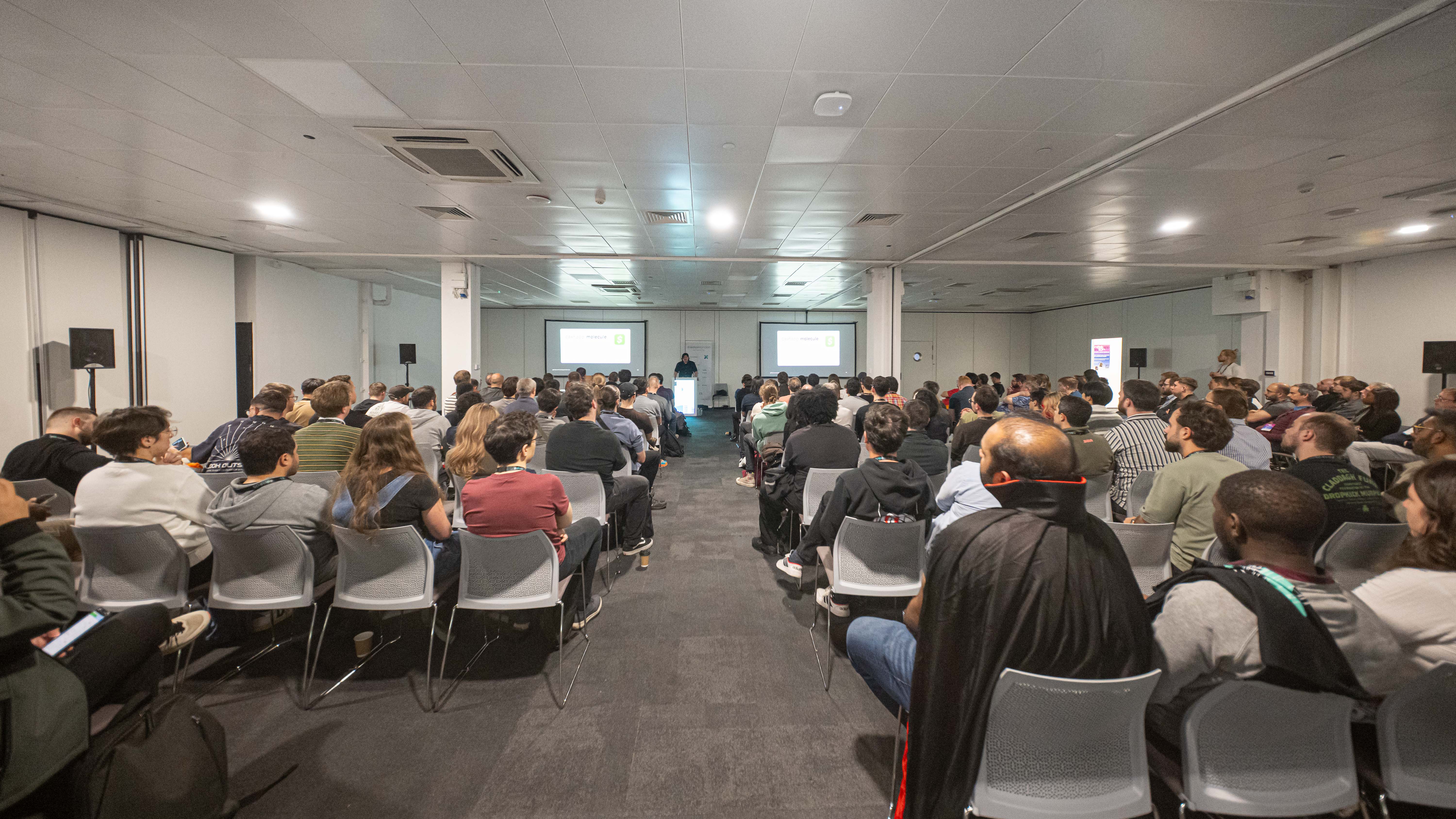
Beyond the UI: Compose as a Foundation for Multiplatform Apps
In this talk, we’ll explore how Compose Multiplatform can reshape not just the user interface, but the entire architecture of your app. You’ll learn techniques for structuring state, managing business logic, and creating modular, testable, and maintainable systems across platforms. Whether you’re targeting mobile, desktop, or beyond, this session will give you the tools and perspective to design applications that exploit the efficacy of Compose.
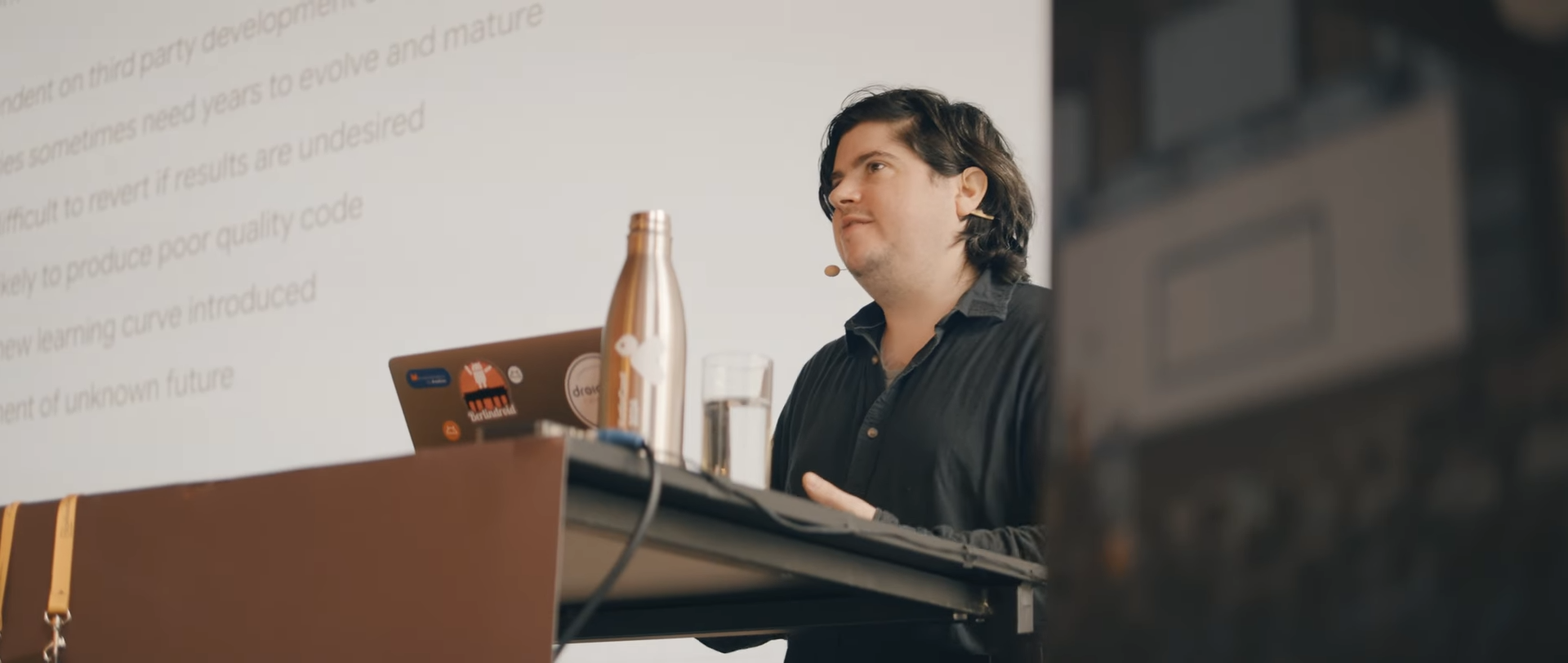
Hype Driven Development: How I Learned to Stop Worrying and Love the Failures
Ever wondered what it would take to combine all the experimental features of a language you love (Spoilers… It’s Kotlin!) into one big bundle? I’m a lover of new and shiny stuff, so let me share with you my experience of using everything shiny, and new, in my pet project, to show you how to not do all the things you might want to do with yours! JetBrains Compose for Desktop, Unstable Coroutines APIs, version catalogues, Gradle composite builds, multiplatform navigation support, multiplatform paging, GraphQl, Firebase Cloud Functions, Molecule, Mosaic, what could go wrong?! ...
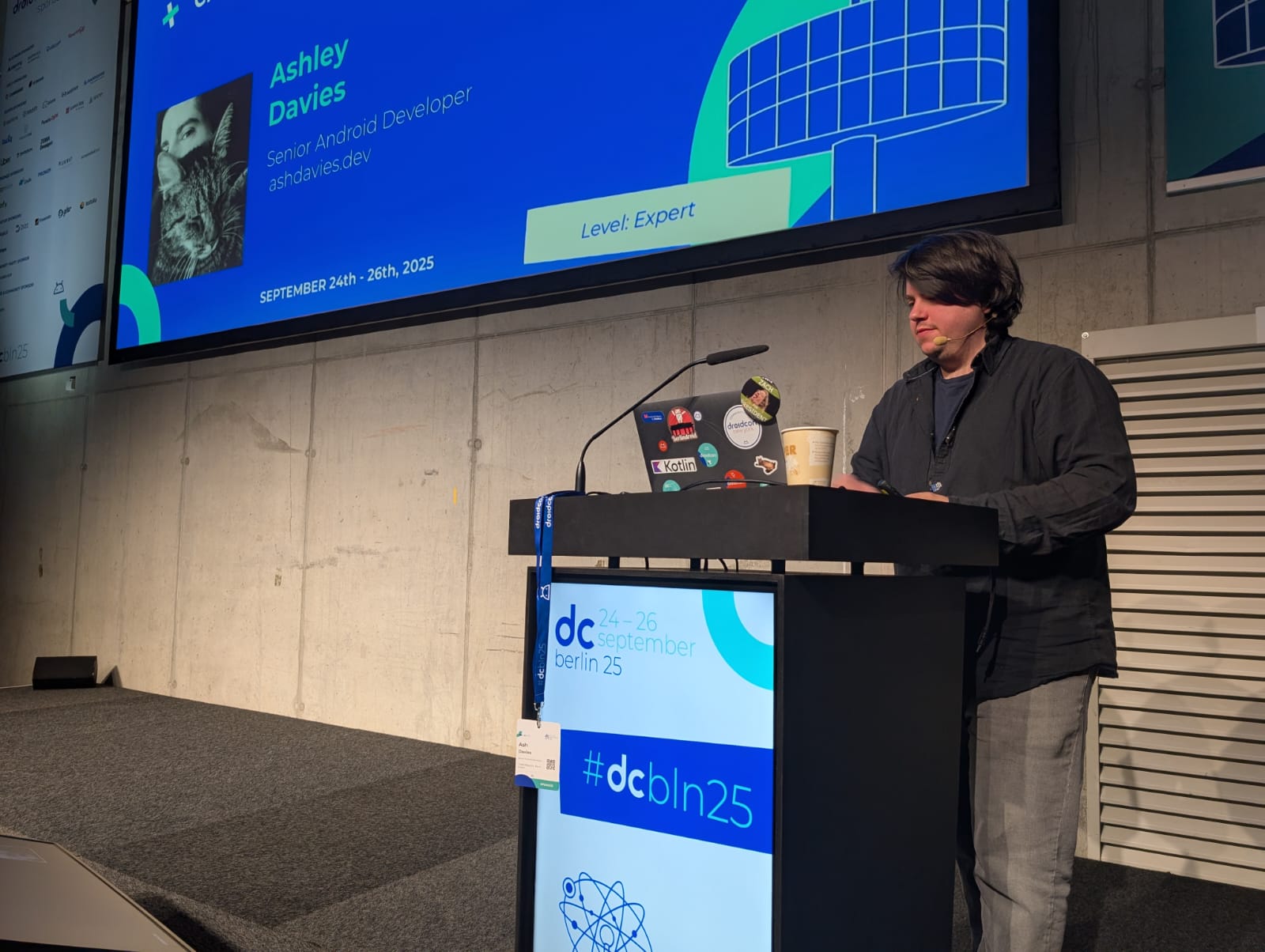
Crafting Idiomatic APIs with Kotlin and Compose
What’s in a language? What does it mean to be idiomatic? Writing clean, intuitive APIs isn’t just about functionality — it’s about designing interfaces that feel natural and intuitive. With Kotlin and Compose, we have a powerful set of tools and syntax that, when used effectively, can reduce cognitive load and make your APIs both elegant and expressive. In this talk, we’ll dive into the principles of idiomatic Kotlin and explore how they apply to designing Compose APIs. You’ll learn how to leverage Kotlin’s language features, from DSLs and inline functions to advanced type safety and composable conventions, to craft APIs that are a joy to use. By mastering these techniques, you can deliver APIs that not only “work” but truly feel like Kotlin. ...
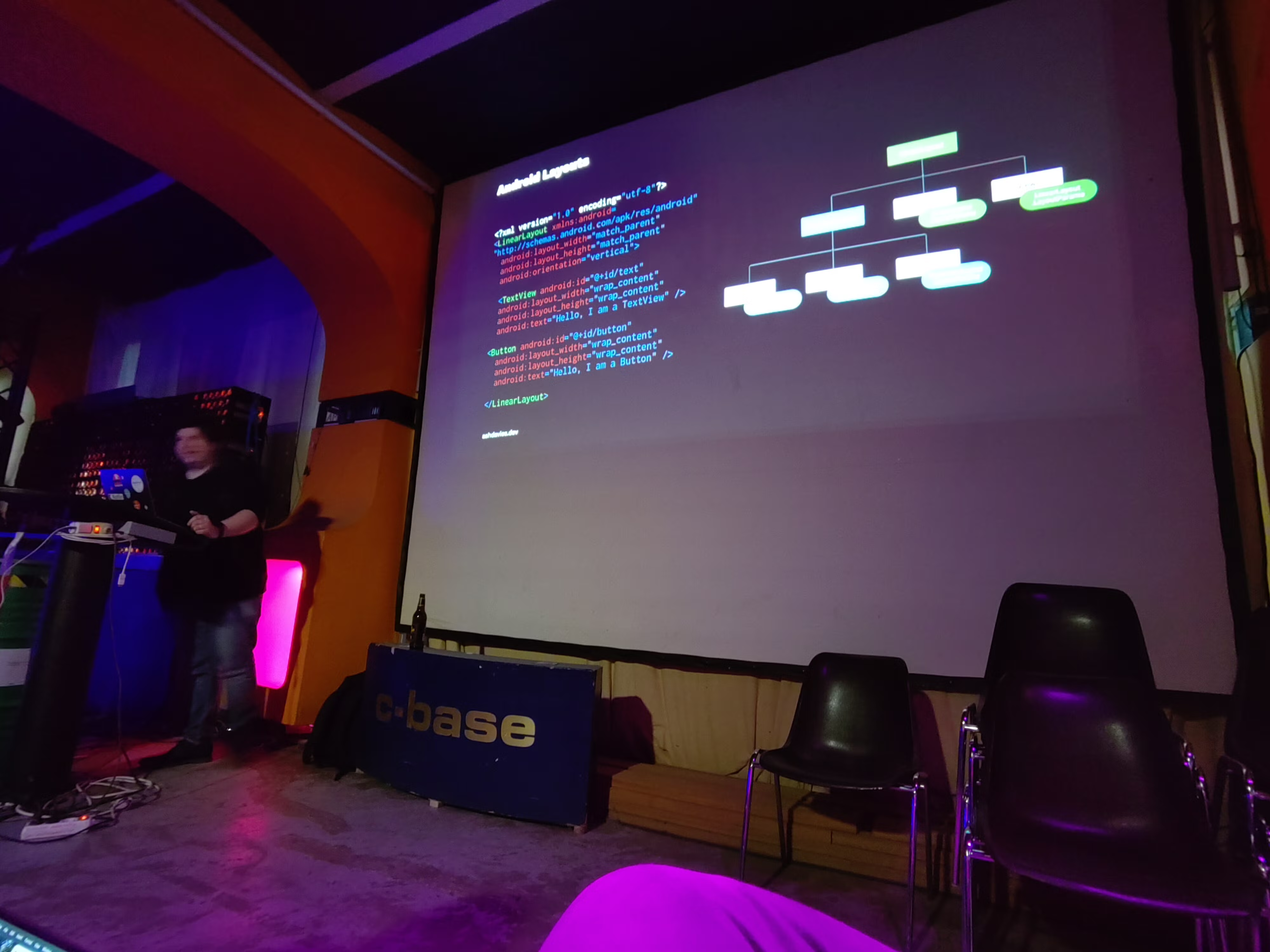
Beyond the UI: Compose as a Foundation for Multiplatform Apps
In this talk, we’ll explore how Compose Multiplatform can reshape not just the user interface, but the entire architecture of your app. You’ll learn techniques for structuring state, managing business logic, and creating modular, testable, and maintainable systems across platforms. Whether you’re targeting mobile, desktop, or beyond, this session will give you the tools and perspective to design applications that exploit the efficacy of Compose.
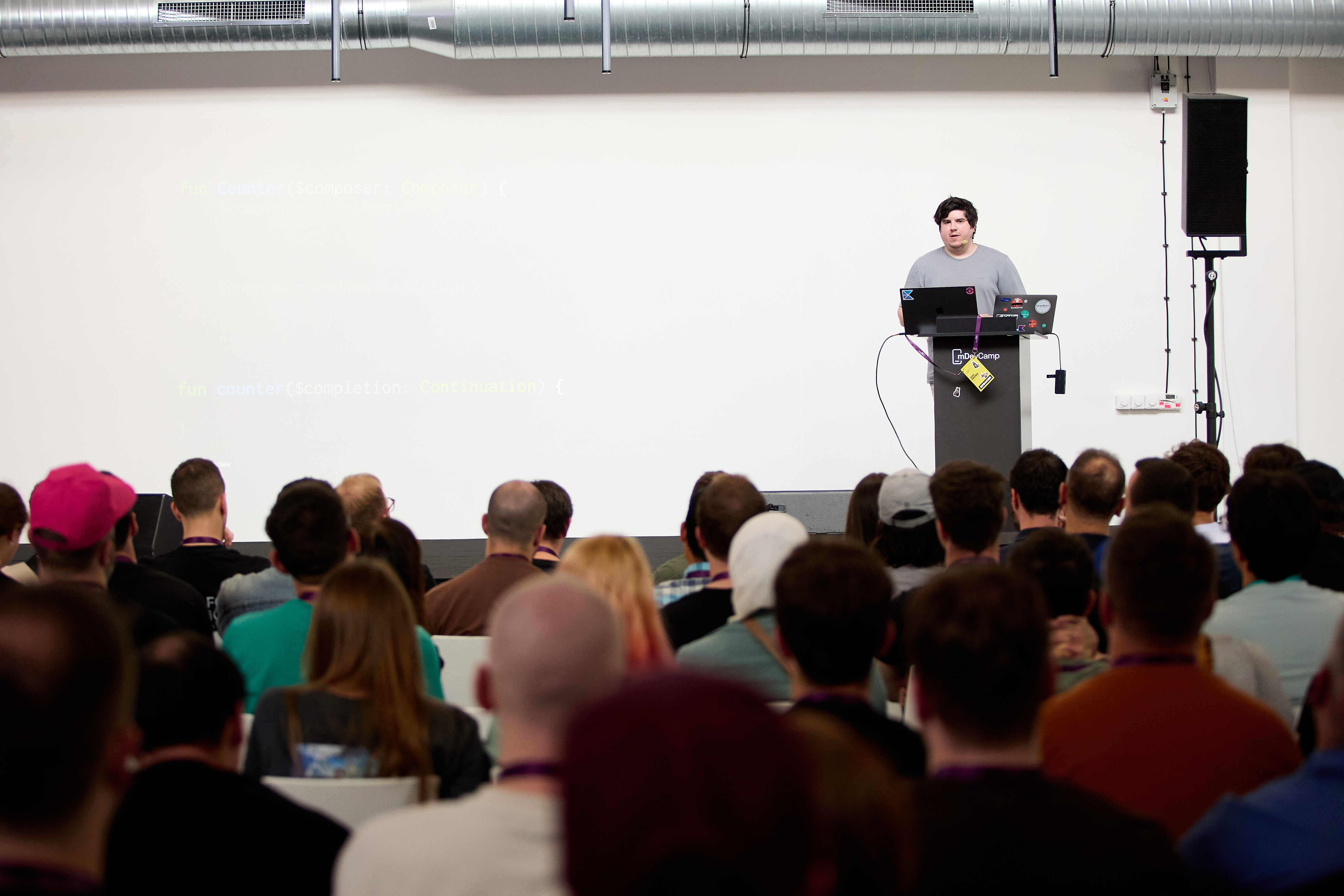
Beyond the UI: Compose as a Foundation for Multiplatform Apps
Much in the same way that Coroutines revolutionized reactive architecture, Compose challenges us to rethink how we design applications. While traditionally seen as a UI toolkit, Compose — and specifically Compose Multiplatform — can play a much larger role in our applications. By leveraging its declarative and state-driven nature, we can build, model, and manage application state in a way that is consistent, scalable, and platform-agnostic.
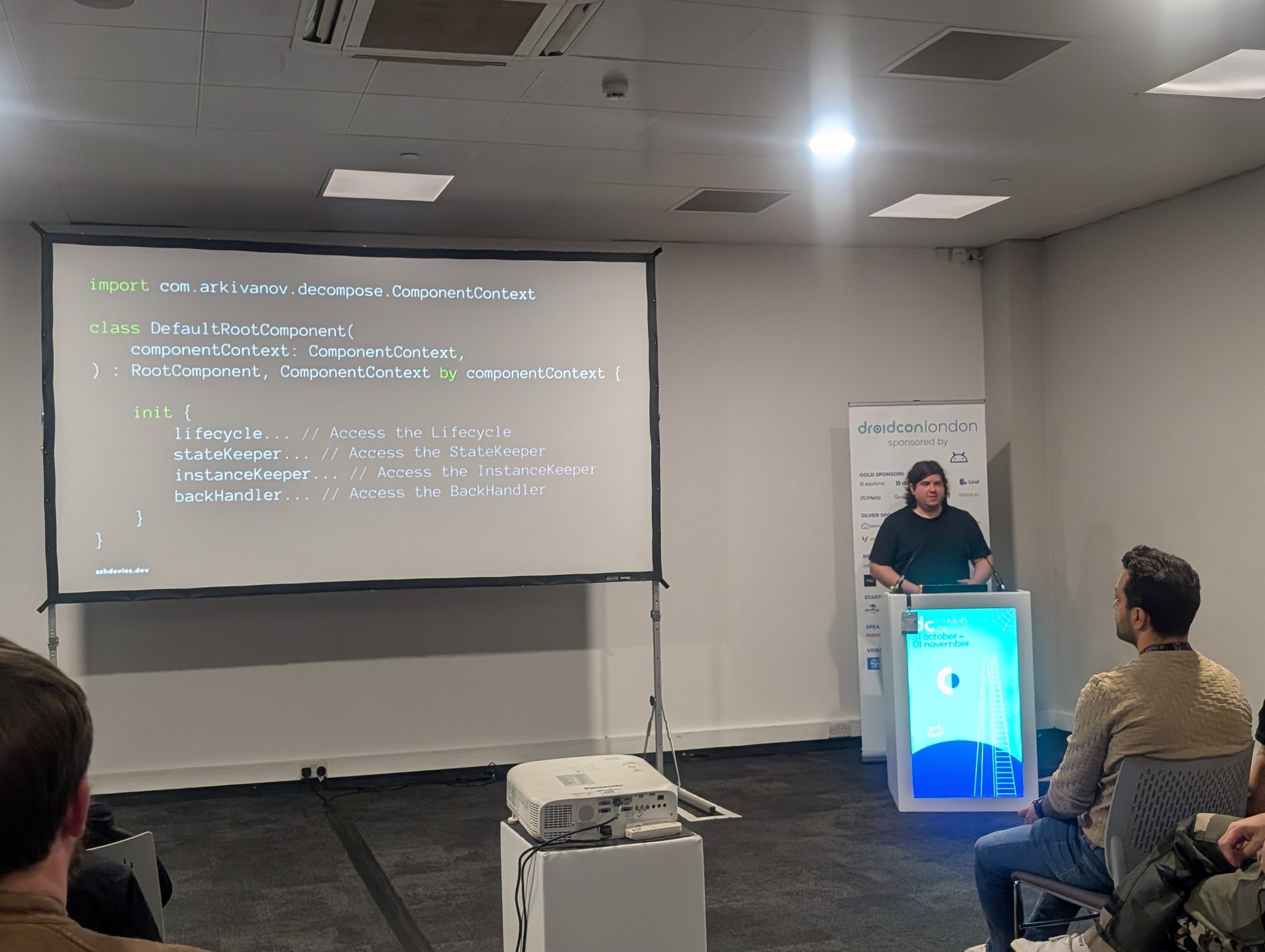
Navigation in a Multiplatform World: Choosing the Right Framework for your App
Navigation in mobile, desktop, and web applications is such a fundamental part of how we structure our architecture. In order to both obtain functional clarity, and abstraction from platform level implementation. For a long time, there have been options available specific to each platform, and even options part of the platform framework itself. Though it can be difficult to find the right option for platform-agnostic code, ensuring consistency. Some go one step further, providing an opinionated guide on how to architecture your application. ...
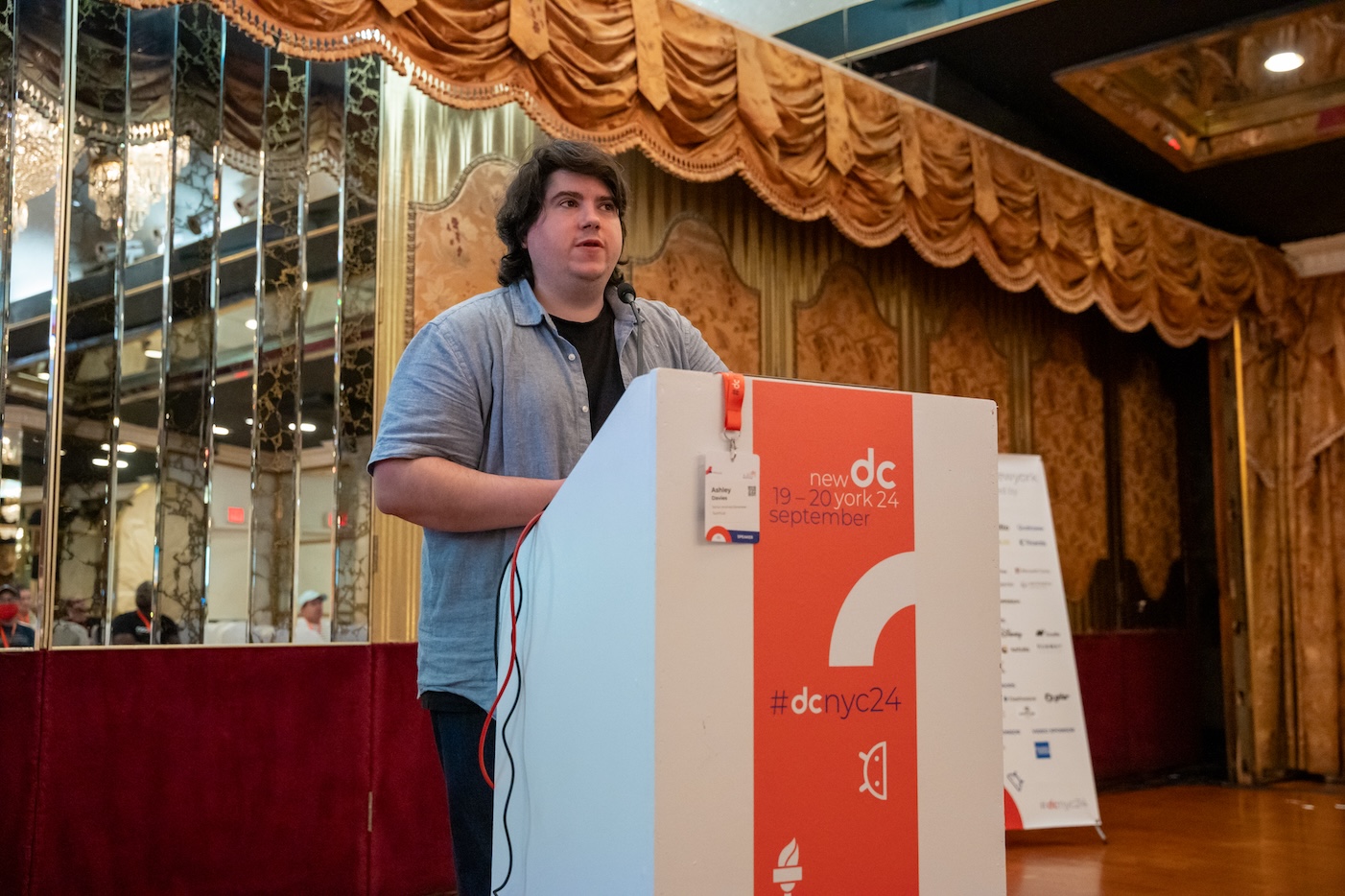
Navigation in a Multiplatform World: Choosing the Right Framework for your App
Navigation in mobile, desktop, and web applications is such a fundamental part of how we structure our architecture. In order to both obtain functional clarity, and abstraction from platform level implementation. For a long time, there have been options available specific to each platform, and even options part of the platform framework itself. Though it can be difficult to find the right option for platform-agnostic code, ensuring consistency. Some go one step further, providing an opinionated guide on how to architecture your application. ...
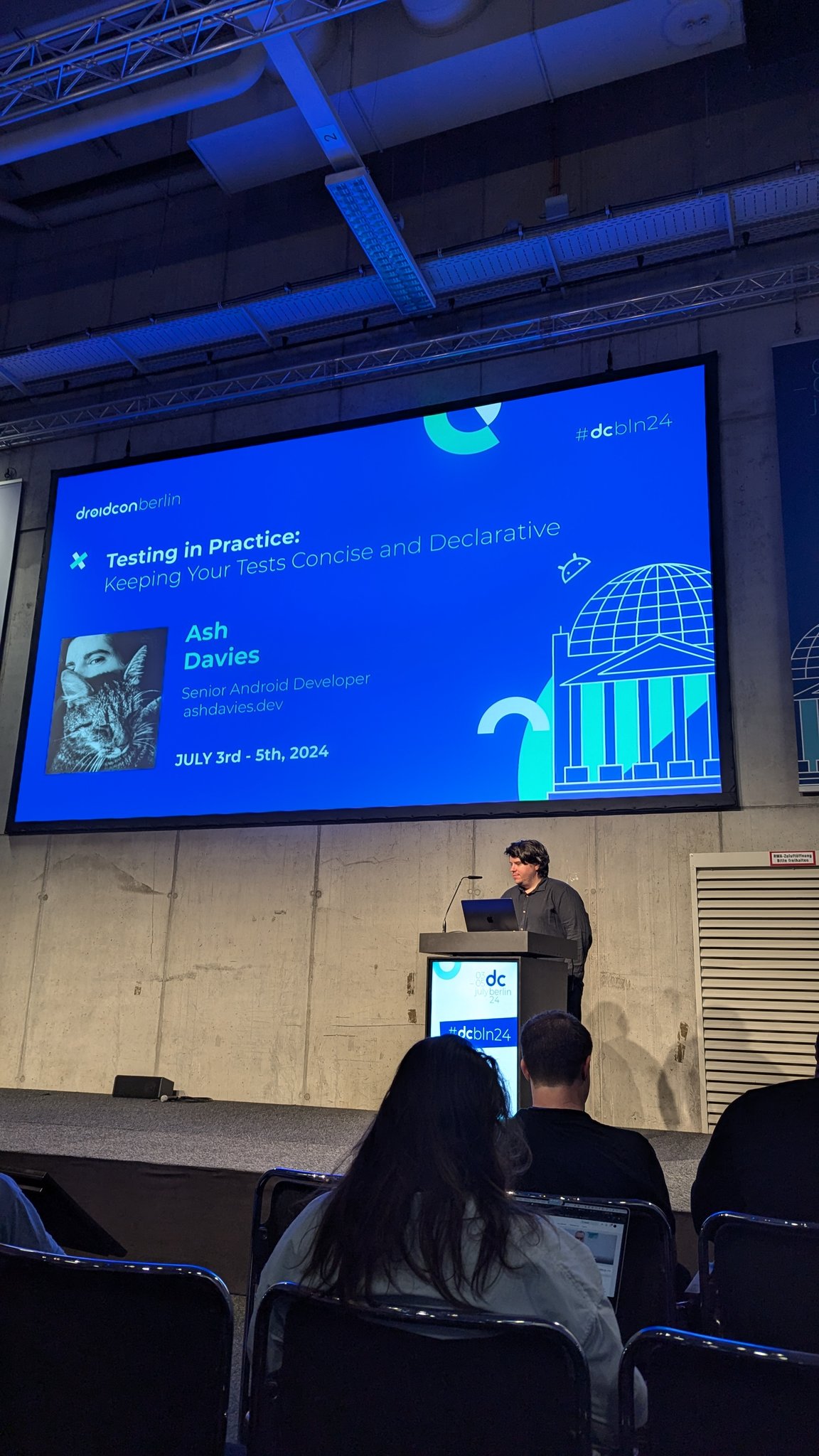
Testing in Practice: Keeping Your Tests Concise and Declarative
Testing isn’t always everybody’s favourite task, but that doesn’t need to be the case! Writing tests can be an enjoyable way to practice your coding techniques! But with conflicting opinions on writing test code that is declarative, explicit, terse, concise, and isolated, it can be tough to know how to satisfy all of these whilst still retaining your will to live. I’ll be covering a few techniques, and mechanisms, for writing idiomatic Kotlin code that leaves you with a beautiful test case that not only fulfils all this but gives you accurate code documentation for your project. ...
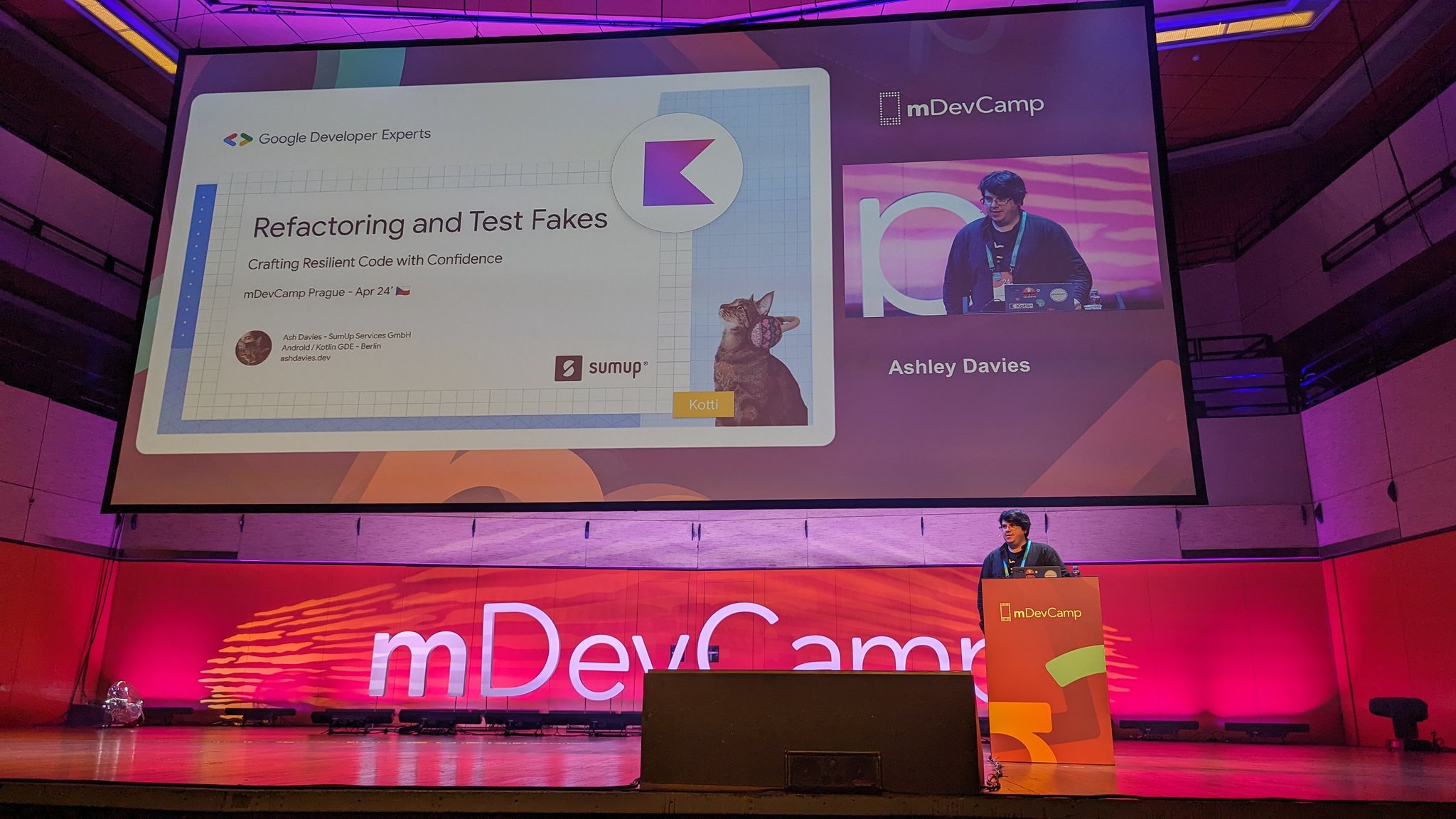
Refactoring and Test Fakes: Crafting Resilient Code with Confidence
Crafting resilient code is one of the most important things we do as software developers, but it’s much easier said than done! Building with confidence requires an appropriate test harness and automated safeguards to ensure your software is robust. In most real world scenarios, we don’t have the luxury of working with a green field project, so it can be difficult to apply best practices whilst maintaining legacy code. How then can we refactor, and effectively utilise test fakes appropriately? ...
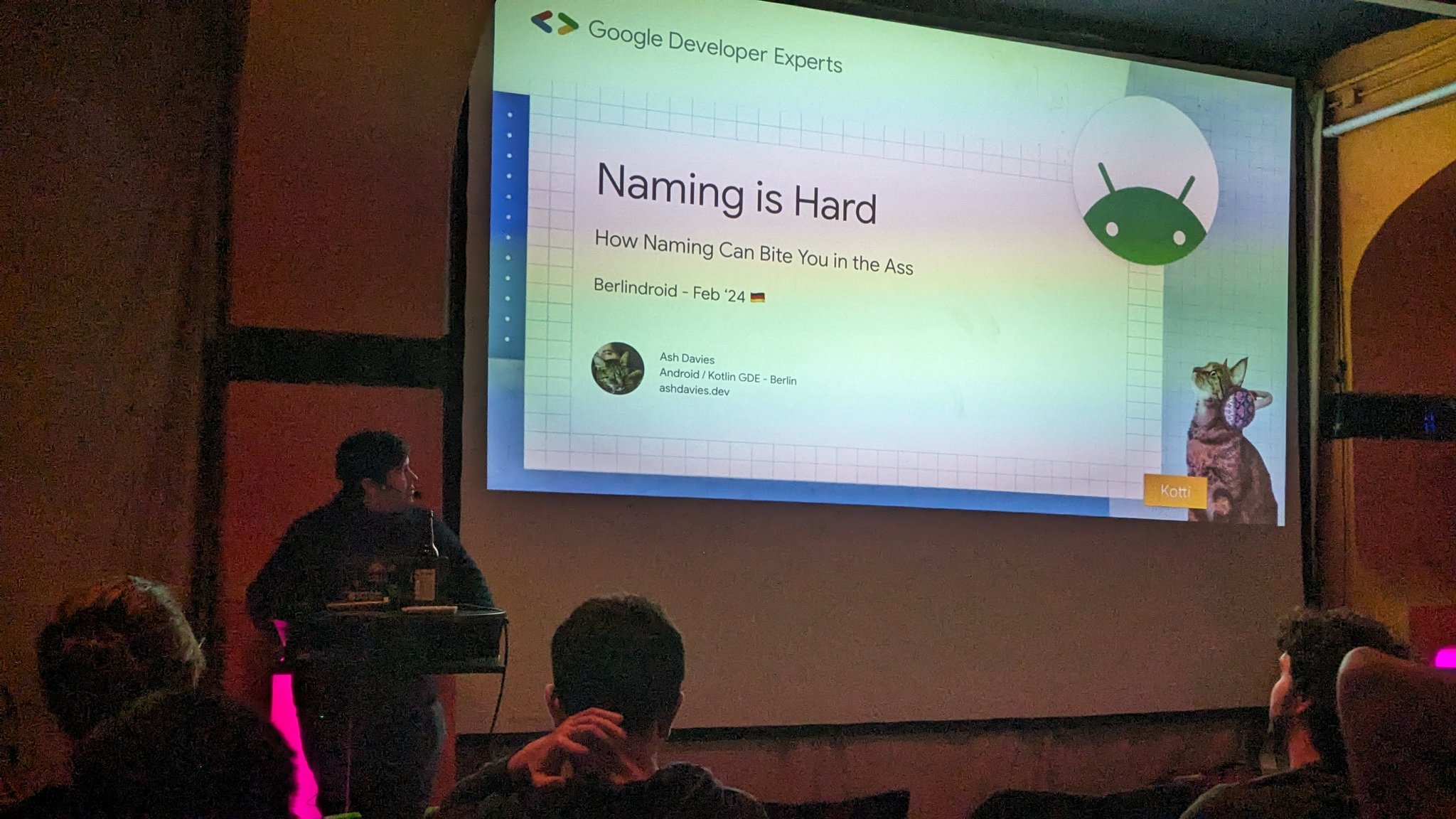
Naming is Hard: How Naming Can Bite You in the Ass
Naming is hard, it’s no unfamiliar thing to software engineers that describing our software can sometimes be just as hard as writing it in the first place. But did you know that the names we give our well-intentioned ideas can come back to haunt us? It would turn out that naming is not just hard, but it has implications! Gradle will often not actually report when names collide! Which means you might end up with unexpected class resolutions! Which leads us down the rabbit hole of, how does Java resolve classes in the first place?! ...